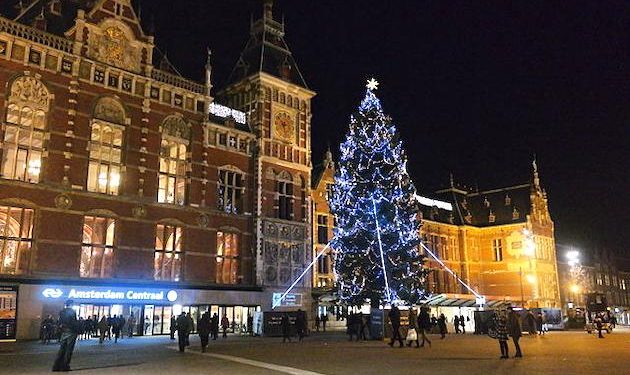AMSTERDAM, Netherlands: Amidst concerns over the Omicron variant of COVID-19, Holland has begun a strict Christmas lockdown, with non-essential shops, bars, gyms, hairdressers and other public venues closing until at least 14th January.
Dutch Prime Minister Mark Rutte said the measures were “unavoidable,” and many European countries have been tightening restrictions to curb the spread of Omicron.
In a news conference, Rutte said, “I stand here tonight in a sombre mood. And a lot of people watching will feel that way too. To sum it up in one sentence, the Netherlands will go back into lockdown from tomorrow.”
The new restrictions include urging the public to remain at home as much as possible, and there are strict limits on the number of people who can gather.
A maximum of two guests, aged 13 and over, are allowed in people’s homes, but this will rise to four people between 24th and 26th December and on New Year’s Eve and New Year’s Day.
Events are not permitted, expect for funerals, weekly markets selling groceries and professional sports matches with no spectators, while restaurants can continue to sell takeaway meals, and non-essential shops can offer click and collect services.
All schools are now closed until at least 9th January.
“I can now hear the whole of the Netherlands sighing. This is exactly one week before Christmas, another Christmas that is completely different from what we would like,” Rutte stressed, adding that a failure to act immediately would likely lead to “an unmanageable situation in hospitals.”
Earlier, people rushed to do their Christmas shopping after reports that new restrictions were about to be implemented.
Ayman Massori told AFP news agency, “It is too busy, but I am coming before the Christmas holidays to pick up gifts, it seems like a new lockdown is coming.”
According to the Dutch National Institute for Public Health, the Omicron variant currently accounts for a minority of coronavirus cases in Holland, but is spreading rapidly, with officials stressing that it is expected to become the dominant variant by the New Year.
Jaap van Dissel, head of the Dutch outbreak management team, said the new measures would “buy time,” allowing more people to receive boosters and the healthcare system to prepare for a possible rise in infections.
“As a country, we are best protected if as many people as possible get a booster vaccination,” he added.
More than 85 percent of all Dutch adults have been vaccinated, but so far fewer than 9 percent have received the booster shot.
Meanwhile, Health Minister Hugo de Jonge said all adults would now get an invitation for a booster appointment by 7th January.






